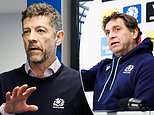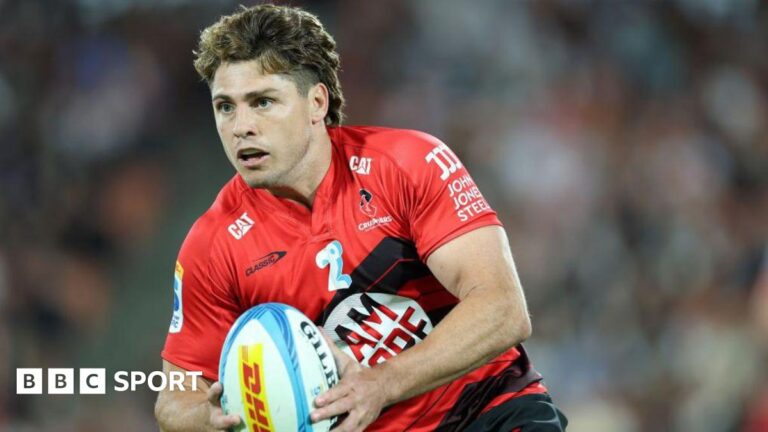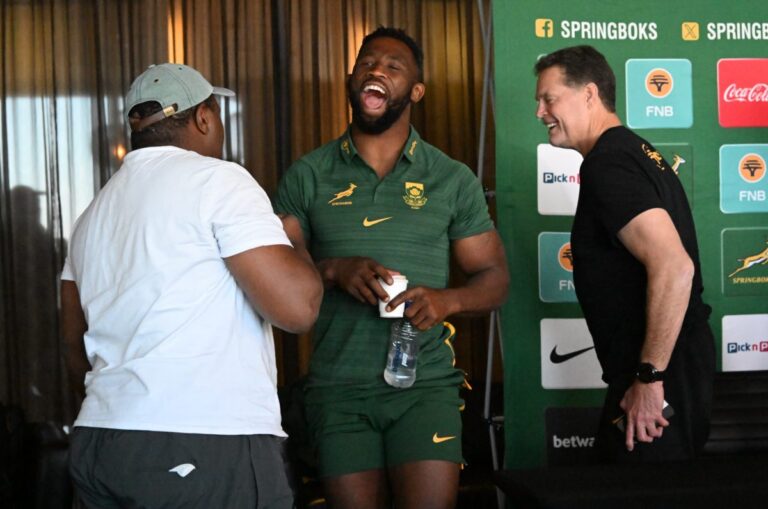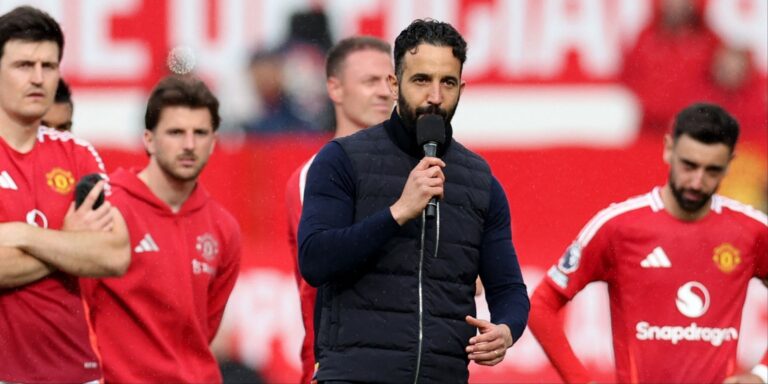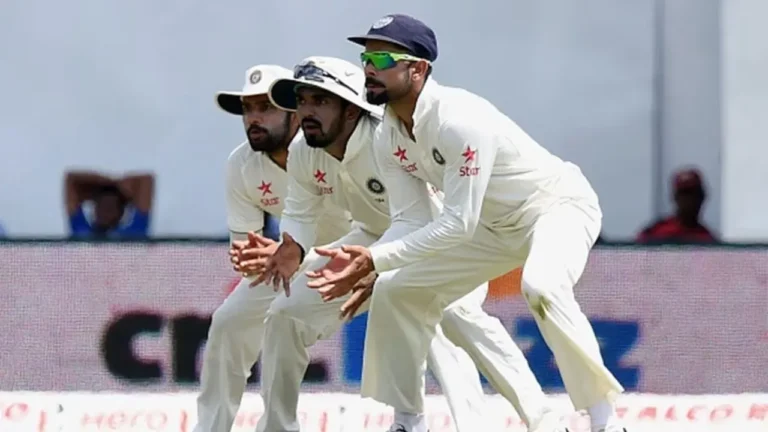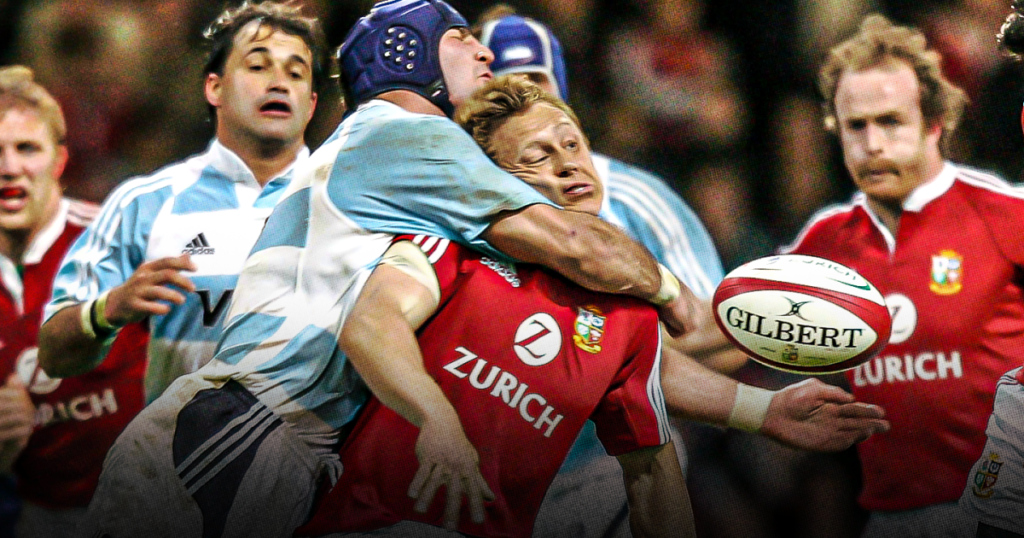
It is a warm, autumn morning and over coffee at the San Isidro clubrooms, in the outskirts of Buenos Aires, Marcelo Loffreda reminisces about 2005, when he coached a Pumas team missing a whole host of its stars against what was promised to be the biggest and best British and Irish Lions side to embark on a tour to New Zealand.
“The media said we would lose by 70 points,” Loffreda says. “I remember sitting down with the team and telling them we certainly did not believe that, but we would follow that line and also speak about how tough it would be for us, how difficult it had been to come up with a squad and how we would miss some of our players.
“We wanted the Lions to go into the game thinking it would be an ‘easy’ game.”
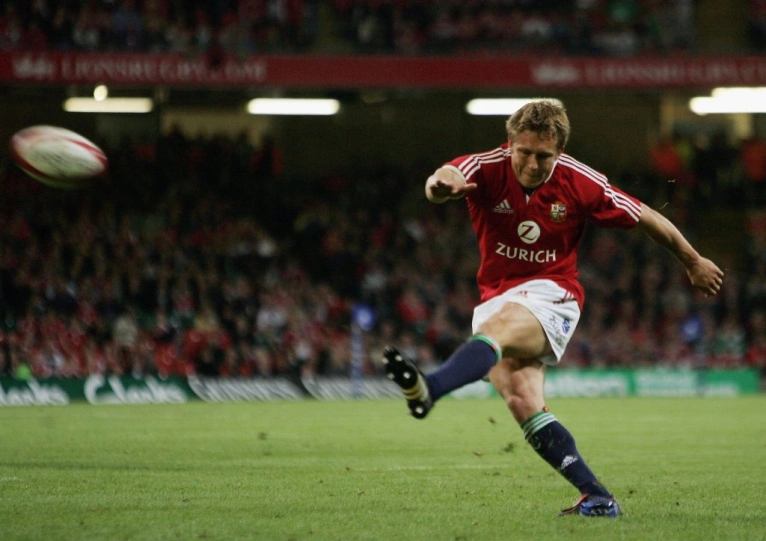
Loffreda is convinced not just the media bought that message.
To understand what the former Puma captain and coach of eight years is saying, we must go back to the genesis of this game.
For the first time ever, the Lions were in search of a warm-up match that would also serve as a money spinner for their very expensive tour. Forty-four players and 29 coaches and support staff were Aotearoa-bound the next day and that came at a cost. Clive Woodward, still hailed as the pied piper after winning the World Cup 18 months earlier, went big, big, bigger.
Without the regular 12-Test calendar it now has, Argentina was invited and any hesitation from the Argentine Rugby Union (UAR) melted when they were offered a fee – rumoured to have been £500,000 – something which had never happened to them.
With the French rugby season unfinished, and the Lions v Pumas game outside of an international window, Loffreda was playing ‘player Tetris’.
There was a proviso: Los Pumas had to have their best available team for the first official ‘home’ Lions Test. We’ll come back to that later.
With most top players plying their trade in France and England it was already a tough ask. The Fernández Lobbe brothers, Juan Martin and Nacho, won the Challenge Cup with Sale the day before the game and four other Pumas were at Murrayfield as their colleagues faced the Lions. Juan Martín Hernández, Agustín Pichot and Rodrigo Roncero were with Stade Français as Omar Hasan’s Toulouse celebrated winning the Heineken Cup.
With the French rugby season unfinished, and the Lions v Pumas game outside of an international window, Loffreda was playing ‘player Tetris’. In all, more than 30 players had to thank him for the opportunity but politely decline.
The previous season had finished with a game in Buenos Aires against the Springboks, also outside of the international window. When comparing that team to the one that took the field at the then-Millennium Stadium, only two starters and three reserves had some involvement in both games.

“Just putting the squad together was very hard, but once we settled on those who’d be with us in Cardiff, it all went smoothly and it was a great week,” Loffreda says.
Three heroes of Argentina rugby were back. Lisandro Arbizu had not played for the team since August 2003 when a knee injury cost him the World Cup captaincy, prop Mauricio Reggiardo was brought out of a retirement he’d announced after the same tournament, and hooker Federico Méndez who was back at home having lost his starting position.
The much-travelled Méndez went to the Loffreda at the start of the week with a bold proposition.
“First-choice hooker was Mario Ledesma so I told Marcelo that I was happy to play at tighthead and that would be my last game for Los Pumas,” he tells RugbyPass from Mendoza, where he has become a successful businessman. “I decided there and then to quit international rugby.”
Méndez was duly selected and wore number one, swapping jerseys with Reggiardo.
Publicly, we wanted to show a very weak side and spoke about this in a press conference. We wanted the Lions to underestimate us.
“I had played my first Test in 1990 using number one and wanted to finish with the same number; Mauro was very kind.”
Preparations wet well. The senior players agreed with Loffreda’s PR tactics.
“Publicly, we wanted to show a very weak side and spoke about this in a press conference,” the former coach says. “We wanted the Lions to underestimate us. Inside, we were convinced and hungry to perform well.”
Former England international and coach Les Cusworth, a technical advisor to Los Pumas between 2000 and 2007, explained to the team who the Lions were and what they stood for, but there wasn’t much analysis on the opposition given they were playing their first game. Preparation was focused on what Los Pumas wanted to do.
“We had a basic game plan, experienced players and the squad’s commitment was second to none.”
In the absence of Pichot, who had taken over from Arbizu in 2003, a new captain was unveiled. Future World Rugby hall of famer Felipe Contepomi would eventually lead Argentina in 23 more Tests, even if the Lions game is not yet considered a full international by the UAR. Contepomi, the current Pumas head coach, now faces similar selection problems as Loffreda battled 20 years earlier.
Contepomi had a stormer, breaking for the only Puma touchdown scored by wing José Núñez Piossek. Federico Todeschini’s boot was spot on, kicking the other 20 points, Arbizu solid as ever, Nicolás Fernández Miranda a great reader of the game at half-back and just a second cap, and first major international, for Juan Manuel Leguizamón at number eight. He would soon move to London Irish, retiring from Test rugby 14 years later at Japan 2019.
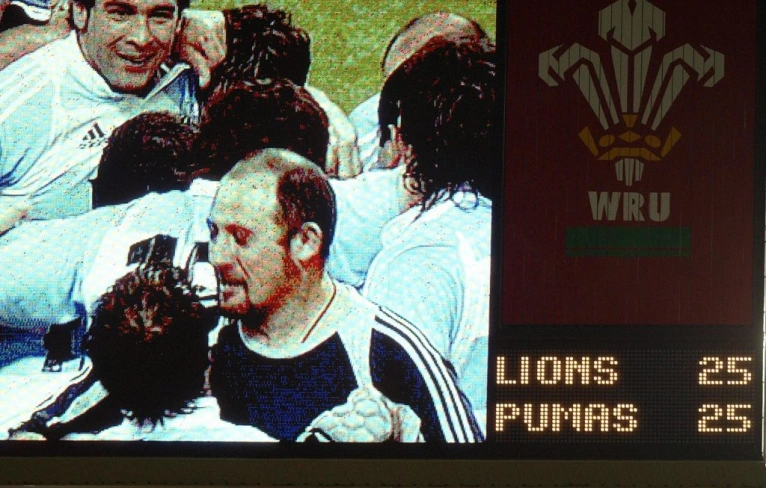
“With Mario (Ledesma) and Mauro (Reggiardo) we had a very strong front row and we controlled the scrum throughout the game,” recalls Méndez.
So much, he says, that despite being far from his best physical self, “we killed them in the scrum. I believe that (Graham) Rowntree asked to be replaced as he had had enough.”
The final minutes had the almost 70,000-strong crowd on the edge of their seats.
After 80 minutes, Los Pumas were leading by three and Australian referee Stuart Dickinson saw fit to have the game played until the 89th minute, when Jonny Wilkinson saved some face for the Lions with an angled penalty, an infringement which Loffreda believes “maybe was a penalty, but the referee caved to pressure; it could have been play on.”
He does admit as his team’s fitness began to fade, the Lions came back strongly. On the flip side, an injured Todeschini had to be replaced midway through the second half.
It was a 25-25 draw; the way the Argentines celebrated on the field, and the Lions’ faces, spoke of the importance the game had for both sides.
I had decided to retire from international rugby and I knew what I had known and lived from when I was 18 to 33 would come to an end when I crossed the white line.
“It had been a week of fast-tracking everything and of pretending. It was a puzzle which we worked out to perfection,” says Loffreda, an engineer by trade.
“Cardiff was impressive, with a red wave of fans and at the ground the Lions fans slowly getting quieter and quieter.”
Whether Woodward, who would play mind games with the media later on tour using the notorious Alistair Campbell, fell into the trap set by Loffreda is a question for another day.
“I had played against him in 1978 and 1981 and have huge respect for him,” the Argentine says. “After the game, he came into the changing room, we swapped shirts and had a beer.”
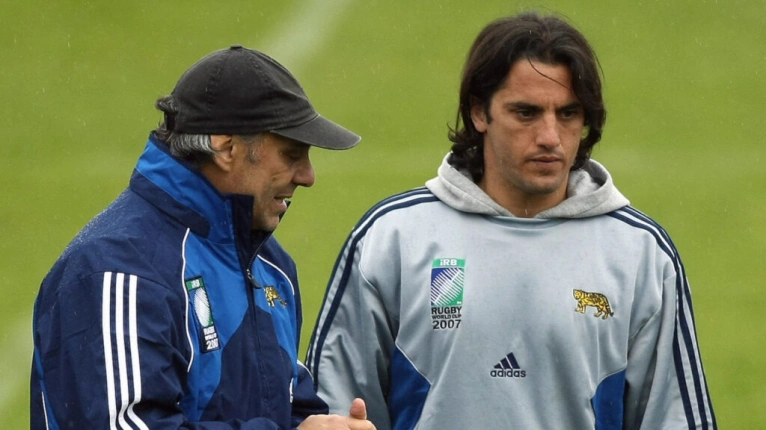
Two undercooked sides; one partying, the other hanging their heads. A couple of months later, the voyage to New Zealand would prove an infamous and emphatic failure.
“We celebrated a lot; we were very happy what we’d achieved but success not always is winning, it having given your all and that team did exactly that,” Loffreda says.
For Méndez, those final moments as a Puma still live with him.
“Very moving. I had decided to retire from international rugby and I knew what I had known and lived from when I was 18 to 33 would come to an end when I crossed the white line.”
He was the last Puma to leave the field a good quarter of an hour after the final whistle.
When the time came for the Lions to pay the fee, they reportedly tried to negotiate a reduced rate due to Argentina’s weakened side. Letters came and went, but in the end, the 25-25 score ensured payment was made in full.
